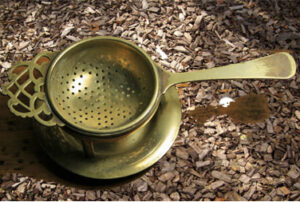 Pau d’arco is a type of tree bark with rich anti-inflammatory, antimicrobial, and antifungal properties that can be used as an immune system balancer.
Pau d’arco is a type of tree bark with rich anti-inflammatory, antimicrobial, and antifungal properties that can be used as an immune system balancer.
It has been used successfully for centuries to help the body reach balance again so it can fight off infection.
Studies suggest that pau d’arco may support those struggling with HPV and Candida; both are caused by fungal or viral infections.
So, passing around the proverbial cup of Pau d’ Arco tea may prove to be more than just a warm hug for HPV.
What is Human Papillomavirus (HPV)?
HPV is a common virus that affects many people – in the US alone, about 79 million individuals are currently infected, and around 14 million become infected every year.
HPV is most commonly transmitted through direct skin-to-skin contact, though it can also be acquired through sexual intercourse with a partner who has it.
Interestingly, HPV typically presents no symptoms – therefore, the only way to determine if you have contracted the virus is to be tested. Proper protection and regular screening are important steps to take to reduce the likelihood of HPV infection both for yourself and your partners.
Recent studies suggest that Pau d’ Arco, an Amazonian herbal remedy composed of bark from several types of trees, has the ability to reduce symptoms associated with Human Papilloma Virus (HPV).
Participants in the study found that Pau d’ Arco effectively decreased their chances of developing precancerous cervical lesions.
While more trials need to be done before further conclusions can be drawn, these findings are promising and lead many to believe that this herbal vodka (i.e. tincture) is a safe and effective way to combat HPV’s pesky effects.
What are cervical lesions?
Cervical lesions are something of an enigma; they appear with no rhyme or reason, often randomly during female gynecological exams. While not always cause for concern, it’s important to understand what these pesky lesions actually are. Anterior cervical lesions are areas that have a different appearance to the surrounding tissue, usually caused by something as simple as hormonal changes or age-related issues.
Medical professionals may recommend further testing if something more sinister is suspected; however, many times the patient will simply be asked to closely monitor the lesion in follow-up visits.
What is Candida?
Candida is a type of yeast infection caused by an over-development of Candida albicans. It can be triggered by a variety of factors, including taking too many antibiotics, using excessive amounts of sugar or processed foods, having hormonal imbalances, wearing tight-fitting clothing that exposes the skin to dampness and friction, or simply having a weakened immune system due to age or illness.
Candida albicans typically reproduces and multiplies very quickly under these circumstances, leading to an uncomfortable buildup of the fungus in your body.
Understanding what causes candida can help you avoid it in the future and find the right treatments if you do develop an infection. Keeping a healthy lifestyle with diet and exercise is key in warding off yeast overgrowth.
Those health issues having been discussed, let’s move on to other issues Pau d’arco can help you with…
Pau d’arco also helps with respiratory tract infections and since it works by boosting immunity, it also helps to…
- reduce symptoms of acid reflux or pain
- reduce inflammation in the body
- reduce painful facial nerve disorder (Trigeminal neuralgia)
- effective for osteoarthritis
- promoting nutrient absorption, meaning its benefits can reach far beyond just relieving pain
Pau d’arco provides natural comfort with few reported side effects, a win-win for those who find themselves dealing with either of these conditions on a day-to-day basis.
How Pau d’arco works
It’s thought that pau d’arco works by disrupting the fungal infection’s cell membrane while also boosting your body’s immune system responses.
Due to its natural anti-fungal and anti-viral properties, Pau d’arco may be a safe and all-natural way to help manage the symptoms associated with these infections from the comfort of home.
It should be noted, however, that healing times may vary and pau d’arco may not work for everyone. Talk with your healthcare provider to see if this natural remedy could work for you!
Antiviral herbs
While there are many antiviral herbs that can be taken to both prevent and eliminate HPV, herbs that have been traditionally used specifically for HPV are: Garlic (Allium sativum), Lemon Balm (Melissa officinalis), Thuja (Thuja occidentalis), Hyssop (Hyssopus officinalis), and Pau d’arco (Tabebuia impetiginosa).
Of these the antiviral herbs, Pau d’ Arco, also known as Lapacho, and Taheebo, has actually been proven to benefit in HPV — it is also antibacterial, anti-cancerous, anti-candida, anti-fungal, and anti-parastic.
 Pau d’arco tea
Pau d’arco tea
This herb can be used daily as a preventative whenever the chances for contracting HPV infections are high.
Pau d’arco taken as a boiled tea two or three times per day if infected with HPV until the virus clears.
Making pau d’arco tea starts by bringing a pot of filtered water to a boil, then add 1-2 teaspoons of the loose bark per one cup (8 ounces).
Let it steep for 8-10 minutes, stirring occasionally.
Once it’s finished brewing, strain the liquid into a cup and enjoy its mild yet distinct flavor — like nutty sweetness in your tea!
For extra benefits, consider adding a spoonful of honey or some freshly cut slices of lemon.
Oh, and don’t worry if you accidentally leave your tea steeping too long — unlike with most teas, pau d’arco won’t get bitter as time passes. Enjoy your cup of natural health!
Research on Pau d’arco
Research in the 1950s and 1960s indicated that taheebo extract and lapachol could slow the growth of certain tumors. The National Cancer Institute subsequently tested lapachol for anticancer activity in humans, with disappointing results.
Some practitioners report anecdotes of marvelous cancer cures, but the Brazilian Cancer Society disavows its use. In human trials, it was difficult to attain therapeutically active levels of lapachol with oral administration, and when levels did get high enough, most people suffered serious adverse effects such as nausea and vomiting.
Taheebo extract has anti-inflammatory activity, at least in rats. Researchers have also found that it helps animals resist ulcers. In laboratory studies on human blood cells, lapachol had immunosuppressant effects at higher doses and immunostimulant activity at low doses.
Pau d’ Arco as a tea or as a tincture taken a few times a week will promote a healthy immune system which in turn helps prevent the onset of viral infections.
In addition, readers of The People’s Pharmacy Guide to Home and Herbal Remedies have reported success in using it topically as a soak to cure fungus-ridden toenails.
Extracts have been used topically to treat Candida yeast infections.
Note: Overall the research on pau d’arco does not necessarily offer strong support for all the medicinal claims made for it.
Parts used
The part of the tree used is the inner bark, and the preparation made from it is sometimes termed taheebo. Pau d’arco, or taheebo, contains a number of quinone compounds, including the naphthoquinone lapachol and the anthraquinone tabebuin. These and related compounds are assumed to be the active ingredients. La pachol has antibacterial activity, and a related compound fights off fungus and yeast. Lapachol has demonstrated activity against malaria, a property that would certainly be useful for people in the areas where Tabebuia species grow wild.
The Tree

GildasioOliveira, CC BY-SA 4.0, via Wikimedia Commons
Pau d’arco, known as lapacho colorado in Argentina and Paraguay and as ipe roxo in Brazil, is a good example of the lure of the exotic.
This South American native has been used medicinally by several indigenous groups.
There are several species of Tabebuia, and most appear to be broad-leaved evergreen trees with very hard wood that resists decay.
It may be difficult to determine precisely which species is being sold as pau d’arco tea.
Pau d’arco has a reputation for having been used by the Incas, although it is not native to the high Andes.
Precautions with Pau d’arci
No serious side-effects have been reported. However, do not use Pau d’ Arco if you are pregnant or taking any medications. Check herb/pharmaceutical interactions before using this or any herb.
Pregnant women should not take taheebo internally because there is no evidence of its safety, although it can provoke adverse reactions.
Pau d’arco should be discontinued before surgery because of the danger of excessive bleeding.
(Article updated January 19, 2023)

 Pau d’arco tea
Pau d’arco tea